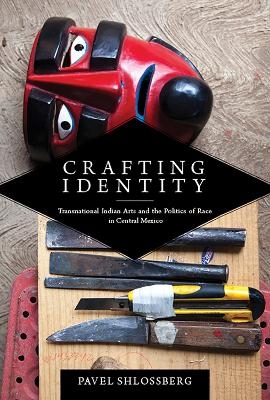
Crafting Identity
Transnational Indian Arts and the Politics of Race in Central Mexico
Seiten
2015
University of Arizona Press (Verlag)
978-0-8165-3099-1 (ISBN)
University of Arizona Press (Verlag)
978-0-8165-3099-1 (ISBN)
Presents an ethnographic exploration of mask making in central Mexico. In addition to examining larger theoretical issues about indigenous and mestizo identity and cultural citizenship as represented through masks and festivals, the book also examines how dominant institutions of cultural production mediate Mexican "arte popular".
Crafting Identity goes far beyond folklore in its ethnographic exploration of mask making in central Mexico. In addition to examining larger theoretical issues about indigenous and mestizo identity and cultural citizenship as represented through masks and festivals, the book also examines how dominant institutions of cultural production (art, media, and tourism) mediate Mexican "arte popular", which makes Mexican indigeneity "digestible" from the standpoint of elite and popular Mexican nationalism and American and global markets for folklore.
The first ethnographic study of its kind, the book examines how indigenous and mestizo mask makers, both popular and elite, view and contest relations of power and inequality through their craft. Using data from his interviews with mask makers, collectors, museum curators, editors, and others, Pavel Shlossberg places the artisans within the larger context of their relationships with the nation-state and Mexican elites, as well as with the production cultures that inform international arts and crafts markets. In exploring the connection of mask making to capitalism, the book examines the symbolic and material pressures brought to bear on Mexican artisans to embody and enact self-racializing stereotypes and the performance of stigmatized indigenous identities.
Shlossberg's weaving of ethnographic data and cultural theory demystifies the way mask makers ascribe meaning to their practices and illuminates how these practices are influenced by state and cultural institutions. Demonstrating how the practice of mask making negotiates ethnoracial identity with regard to the Mexican state and the United States, Shlossberg shows how it derives meaning, value, and economic worth in the eyes of the state and cultural institutions that mediate between the mask maker and the market.
Crafting Identity goes far beyond folklore in its ethnographic exploration of mask making in central Mexico. In addition to examining larger theoretical issues about indigenous and mestizo identity and cultural citizenship as represented through masks and festivals, the book also examines how dominant institutions of cultural production (art, media, and tourism) mediate Mexican "arte popular", which makes Mexican indigeneity "digestible" from the standpoint of elite and popular Mexican nationalism and American and global markets for folklore.
The first ethnographic study of its kind, the book examines how indigenous and mestizo mask makers, both popular and elite, view and contest relations of power and inequality through their craft. Using data from his interviews with mask makers, collectors, museum curators, editors, and others, Pavel Shlossberg places the artisans within the larger context of their relationships with the nation-state and Mexican elites, as well as with the production cultures that inform international arts and crafts markets. In exploring the connection of mask making to capitalism, the book examines the symbolic and material pressures brought to bear on Mexican artisans to embody and enact self-racializing stereotypes and the performance of stigmatized indigenous identities.
Shlossberg's weaving of ethnographic data and cultural theory demystifies the way mask makers ascribe meaning to their practices and illuminates how these practices are influenced by state and cultural institutions. Demonstrating how the practice of mask making negotiates ethnoracial identity with regard to the Mexican state and the United States, Shlossberg shows how it derives meaning, value, and economic worth in the eyes of the state and cultural institutions that mediate between the mask maker and the market.
Pavel Shlossberg is an assistant professor in the master's program in communication and leadership studies at Gonzaga University, USA. His research interests include cultural studies of Latin America, cultural citizenship, cultural production, ethnic and racial identity, transnationalism, and media and reception studies.
| Erscheint lt. Verlag | 30.6.2015 |
|---|---|
| Reihe/Serie | First Peoples: New Directions in Indigenous Studies |
| Zusatzinfo | 21 photographs |
| Verlagsort | Tucson |
| Sprache | englisch |
| Maße | 152 x 229 mm |
| Gewicht | 560 g |
| Themenwelt | Kunst / Musik / Theater ► Malerei / Plastik |
| Sozialwissenschaften ► Ethnologie ► Völkerkunde (Naturvölker) | |
| Sozialwissenschaften ► Kommunikation / Medien | |
| Sozialwissenschaften ► Soziologie | |
| ISBN-10 | 0-8165-3099-8 / 0816530998 |
| ISBN-13 | 978-0-8165-3099-1 / 9780816530991 |
| Zustand | Neuware |
| Haben Sie eine Frage zum Produkt? |
Mehr entdecken
aus dem Bereich
aus dem Bereich
Schweden : Ambiguitäten verhandeln - Tolerieren als soziale und …
Buch | Softcover (2023)
Brill Schöningh (Verlag)
CHF 69,85
Buch | Softcover (2023)
transcript (Verlag)
CHF 75,60


